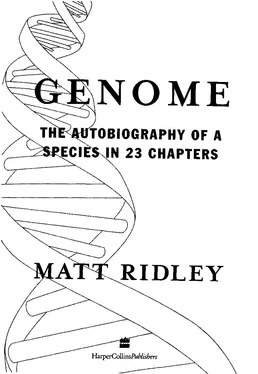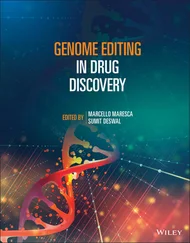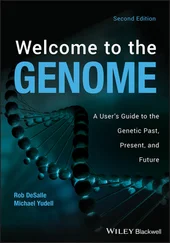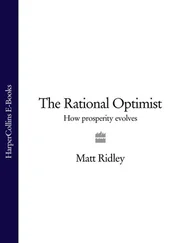Genome - Matt Ridley
Здесь есть возможность читать онлайн «Genome - Matt Ridley» — ознакомительный отрывок электронной книги совершенно бесплатно, а после прочтения отрывка купить полную версию. В некоторых случаях можно слушать аудио, скачать через торрент в формате fb2 и присутствует краткое содержание. Жанр: Старинная литература, на английском языке. Описание произведения, (предисловие) а так же отзывы посетителей доступны на портале библиотеки ЛибКат.
- Название:Matt Ridley
- Автор:
- Жанр:
- Год:неизвестен
- ISBN:нет данных
- Рейтинг книги:5 / 5. Голосов: 1
-
Избранное:Добавить в избранное
- Отзывы:
-
Ваша оценка:
- 100
- 1
- 2
- 3
- 4
- 5
Matt Ridley: краткое содержание, описание и аннотация
Предлагаем к чтению аннотацию, описание, краткое содержание или предисловие (зависит от того, что написал сам автор книги «Matt Ridley»). Если вы не нашли необходимую информацию о книге — напишите в комментариях, мы постараемся отыскать её.
Matt Ridley — читать онлайн ознакомительный отрывок
Ниже представлен текст книги, разбитый по страницам. Система сохранения места последней прочитанной страницы, позволяет с удобством читать онлайн бесплатно книгу «Matt Ridley», без необходимости каждый раз заново искать на чём Вы остановились. Поставьте закладку, и сможете в любой момент перейти на страницу, на которой закончили чтение.
Интервал:
Закладка:
I am E4/E4, or if I have a pair of E3s instead. Not only does it fear that I might be loading up on life insurance precisely because I know from a recent genetic test that I am doomed, thus ripping it off as surely as a man who insures a building he plans to burn down. It also sees that it can attract profitable business by offering discounts to people whose tests prove reassuring. This is known as cherry picking, and it is exactly why a young, slim, heterosexual non-smoker already finds he can get life insurance cheaper than an old, plump, homosexual smoker. Having two E4 genes is not so very different.
Little wonder that in America health-insurance companies are already showing interest in genetic tests for Alzheimer's, a disease that can be very costly for them (in Britain, where health cover is basically free, the main concern is life insurance). But mindful of the fury the industry unleashed when it began charging homosexual men higher premiums than heterosexuals to reflect the risk of A I D S , the industry is treading warily. If genetic testing were to become routine for lots of genes, the entire concept of pooled risk, on which insurance is based, would be undermined. Once my exact fate is known, I would be quoted a premium that covered the exact cost of my life. For the genetically unfortunate, it might prove unaffordable: they would become an insurance underclass. Sensitive to these issues, in 1997 the insurance industry association in Britain agreed that for two years it would not demand genetic tests as a condition of insurance and would not (for mortgages smaller than
£100,000) demand to know the results of genetic tests you may already have taken. Some companies went even further, saying that genetic tests were not part of their plans. But this shyness may not last.
Why do people feel so strongly about this issue, when it would in practice mean cheaper premiums for many? Indeed, unlike so many things in life, genetic good fortune is equitably distributed among the privileged as well as the less privileged - the rich cannot buy good genes and the rich spend more on insurance anyway. The answer, I think, goes to the heart of determinism. A person's decision P R E V E N T I O N 2 6 9
to smoke and drink, even the decision that led to his catching A I D S , was in some sense a voluntary one. His decision to have two E4
genes at the APOE gene was not a decision at all; it was determined for him by nature. Discriminating on the basis of APOE genes is like discriminating on the basis of skin colour or gender. A non-smoker might justifiably object to subsidising the premium of a smoker by being lumped with him in the same risk category, but if an E3/E3 objected to subsidising the premium of an E4/E4, he would be expressing bigotry and prejudice against somebody who was guilty of nothing but bad luck.12
The spectre of employers using genetic tests to screen potential staff is less fraught. Even when more tests are available, there will be few temptations for employers to use them. Indeed, once we get more used to the idea that genes lie behind susceptibilities to environmental risks, some tests might become good practice for employer and employee alike. In a job where there is some exposure to known carcinogens (such as bright sunlight - the job of lifeguard, say), the employer may in future be neglecting his duty of care to his workers if he employs people with faulty p53 genes. He might, on the other hand, be asking applicants to take a genetic test for more selfish motives: to select people with healthier dispositions or more outgoing personalities (exactly what job interviews are designed to do), but there are already laws against discrimination.
Meanwhile, there is a danger that the hobgoblin of genetic insurance tests and genetic employment tests will scare us away from using genetic tests in the interests of good medicine. There is, however, another hobgoblin that scares me more: the spectre of government telling me what I may do with my genes. I am keen not to share my genetic code with my insurer, I am keen that my doctor should know it and use it, but I am adamant to the point of fanaticism that it is my decision. My genome is my property and not the state's. It is not for the government to decide with whom I may share the contents of my genes. It is not for the government to decide whether I may have the test done. It is for me. There is a terrible, paternalist tendency to think that 'we' must have one 2 7 0 G E N O M E
policy on this matter, and that government must lay down rules about how much of your own genetic code you may see and whom you may show it to. It is yours, not the government's, and you should always remember that.
C H R O M O S O M E 2 0
P o l i t i c s
Oh! The roast beef of England,
And Old England's roast beef.
Henry Fielding,
The Grub Street Opera
The fuel on which science runs is ignorance. Science is like a hungry furnace that must be fed logs from the forests of ignorance that surround us. In the process, the clearing we call knowledge expands, but the more it expands, the longer its perimeter and the more ignorance comes into view. Before the discovery of the genome, we did not know there was a document at the heart of every cell three billion letters long of whose content we knew nothing. Now, having read parts of that book, we are aware of myriad new mysteries.
The theme of this chapter is mystery. A true scientist is bored by knowledge; it is the assault on ignorance that motivates him -
the mysteries that previous discoveries have revealed. The forest is more interesting than the clearing. On chromosome 20 there lies as irritating and fascinating a copse of mystery as any. It has already yielded two Nobel prizes, merely for the revelation that it is there, 2 7 2 G E N O M E
but it stubbornly resists being felled to become knowledge. And, as if to remind us that esoteric knowledge has a habit of changing the world, it became one of the most incendiary political issues in science one day in 1996. It concerns a little gene called PRP.
The story starts with sheep. In eighteenth-century Britain, agriculture was revolutionised by a group of pioneering entrepreneurs, among them Robert Bakewell of Leicestershire. It was Bakewell's discovery that sheep and cattle could be rapidly improved by selectively breeding the best specimens with their own offspring to concentrate desirable features. Applied to sheep this inbreeding produced fast-growing, fat lambs with long wool. But it had an unexpected side-effect. Sheep of the Suffolk breed, in particular, began to exhibit symptoms of lunacy in later life. They scratched, stumbled, trotted with a peculiar gait, became anxious and seemed antisocial.
They soon died. This incurable disease, called scrapie, became a large problem, often killing one ewe in ten. The scrapie followed Suffolk sheep, and to a lesser extent other breeds, to other parts of the world. Its cause remained mysterious. The disease did not seem to be inherited, but it could not be traced to another origin. In the 1930s, a veterinary scientist, testing a new vaccine for a different disease, caused a massive epidemic of scrapie in Britain. The vaccine had been made partly from the brains of other sheep and although it had been thoroughly sterilised in formalin, it retained some infectious strength. From then on it became the orthodox, not to say blinkered, view of veterinary scientists that scrapie, being transmissible, must be caused by a microbe.
But what microbe? Formalin did not kill it. Nor did detergents, boiling or exposure to ultraviolet light. The agent passed through filters fine enough to catch the tiniest viruses. It raised no immune response in infected animals and there was sometimes a long delay between injection of the agent and disease — though the delay was much shorter if the agent was injected directly into the brain. Scrapie threw up a baffling wall of ignorance that defeated a generation of determined scientists. Even when similar symptoms appeared in American mink farms and in wild elk and mule deer inhabiting P O L I T I C S 2 7 3
Читать дальшеИнтервал:
Закладка:
Похожие книги на «Matt Ridley»
Представляем Вашему вниманию похожие книги на «Matt Ridley» списком для выбора. Мы отобрали схожую по названию и смыслу литературу в надежде предоставить читателям больше вариантов отыскать новые, интересные, ещё непрочитанные произведения.
Обсуждение, отзывы о книге «Matt Ridley» и просто собственные мнения читателей. Оставьте ваши комментарии, напишите, что Вы думаете о произведении, его смысле или главных героях. Укажите что конкретно понравилось, а что нет, и почему Вы так считаете.












